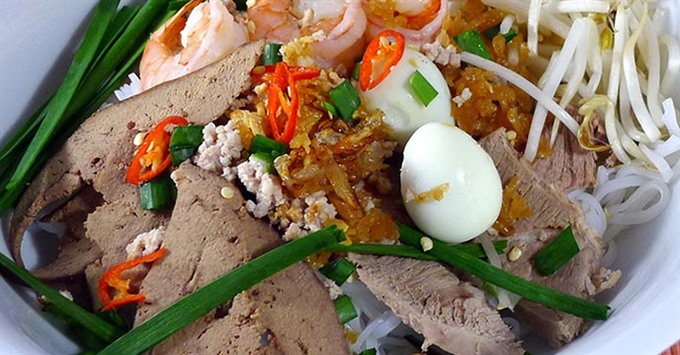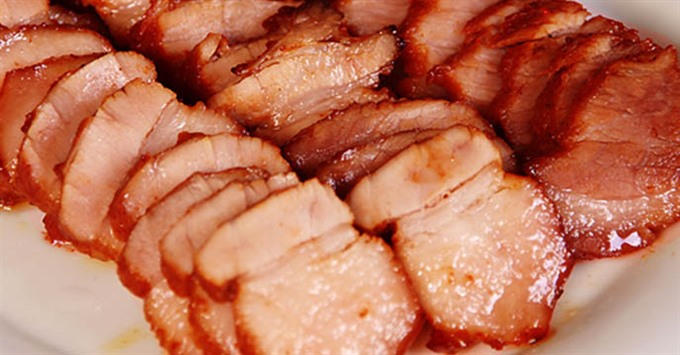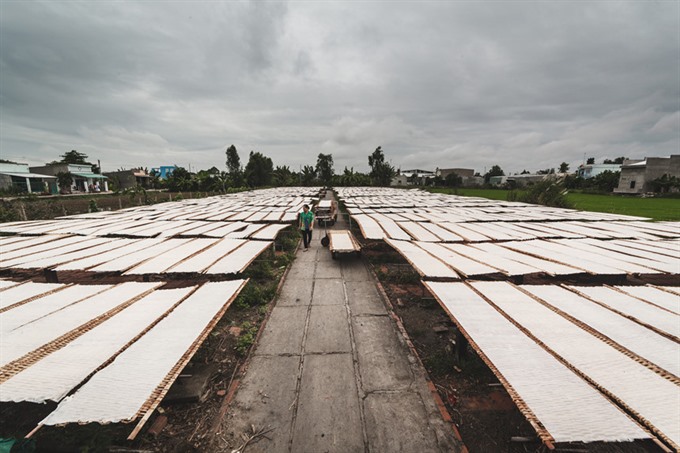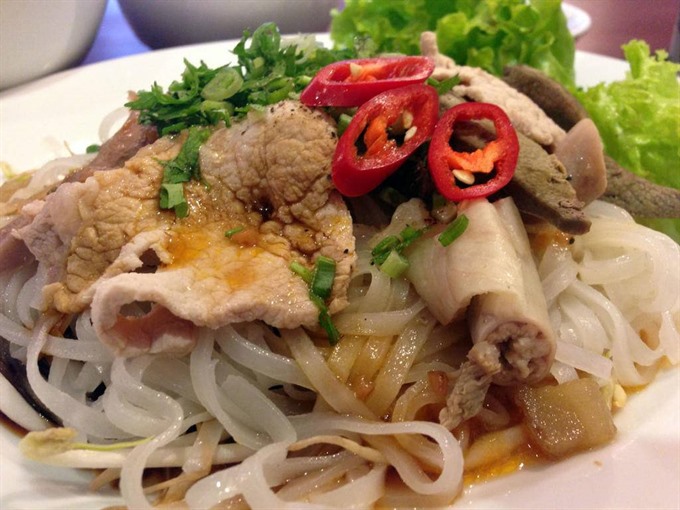 Life & Style
Life & Style

The city of Sa Đéc in Đồng Tháp Province is not only well known for its bewitching ornamental plants and bonsais, but also for its specialty dish hủ tiếu: noodles with pig’s bones, fresh shrimps and many other accompanying flourishes.
 |
| Local celebrity: A bowl of hot hủ tiếu that has brought fame to Sa Đéc. |
by Duy An
The city of Sa Đéc in Đồng Tháp Province is not only well known for its bewitching ornamental plants and bonsais, but also for its specialty dish hủ tiếu: noodles with pig’s bones, fresh shrimps and many other accompanying flourishes.
I had known for a long time that Sa Đéc is famous for the dish, but I hadn’t tried it until I was recently invited by my friend named Nguyên Ngọc to visit her home in Sa Đéc.
Right after my arrival, Ngọc invited me to eat hủ tiếu at Sẩm’s shop on Trần Hưng Đạo Street. The shop is although small, but was already crowded with diners from everywhere in the country. I also saw a group of foreign travellers were enjoying the dish.
 |
| Tasty pig: Char siu roast pork is one of the main ingredients of hủ tiếu Sa Đéc. Photos baotintuc.vn |
Sẩm’s shop is one of the most popular restaurants in the city, living up to her motto: tasty and affordable price. Despite ups and downs, her dish has won a spot in the memories of several different generations of both locals and visitors.
Sitting next to us was a woman named Hồ Thu Hường, 70, who said, “I’ve been an addict of Sẩm’s dish for several decades. It is my favourite breakfast because it’s so tasty and delicious but with an affordable price (from VNĐ 6,000-10,000/bowl) to be suitable for all classes of people including poor labourers.
“Sometimes, the shop is so crowded that I have to wait for half an hour. But I still patiently try to wait to enjoy a hot and fragrant bowl of hủ tiếu,” she said, adding that she especially loves the dish’s broth and the noodles.
After Sẩm died in 2001, her daughter Tăng Kiến Hưng became the owner of the shop which continued to carry her mother’s name.
She told us that in the past, her mother had to wake up at 3 am to prepare the food on a charcoal stove. Now, they use a gas cooker. “We can wake up one hour later to simmer pig bone with dried squid,” she said.
 |
| Old noodles: Hủ tiếu noodles are from the hundred year-old Tân Phú Đông craft village. |
Hưng said all ingredients in her hủ tiếu are ordered from prestigious suppliers, such as rice powder from a hundred year-old traditional craft village of Tân Phú Đông. Other ingredients like pig bone and pork meat to make char síu, green bean sprouts, quail’s eggs, fresh onions, celery, scallion and turnip are purchased early during the day. Spices such as quality fish sauce, oyster sauce or soya sauce, vinegar and sesame oil, have also been ordered from prestigious suppliers since her mother started the job more than half a century ago.
Hưng is right. Her dish is so excellent that I could see that it was very different from other suppliers of the meal.
I although had hủ tiếu in Hà Nội and some other provinces, I realized that thanks to the special rice powder from the century-old craft village of Tân Phú Đông, Hưng’s dish becomes tastier than others.
The sweet broth, the mixed fragrance of milky coloured but soft and crispy noodles, fresh shrimp and other ingredients make the dish special.
“It not only hooks local people but also foreign travellers,” said a couple of Australians sitting next to my table. During their week-long stay in Sa Đéc, they ate hủ tiếu every day.
 |
| Yum: Apart from hot hủ tiếu, the dried version in Sa Đéc is also a must-try. |
Trần Thị Kim, one of the major noodle suppliers from the craft village said the noodle, which helps to create fame for the Sa Đéc dish, is made from a special rice (locally known as gạo ngang) that can only be planted in her Tân Phú Đông Village. This powder helps to keep the charming flavour of the original rice.
“We supply hundreds of kilogrammes of noodles without chemicals or additives for wholesale and retail dealers including hủ tiếu sellers like Hưng every day,” Kim said.
Jury board member of Việt Nam Master Chef Phạm Tuấn Hải told Việt Nam News that he also addicted to hủ tiếu Sa Đéc. It is not only a tasty meal but also a food enriched with vitamins, calories and nutrition. It is very good for weak patients and children to improve health, particularly the digestive system.
“Hủ tiếu Sa Đéc is now on the list of must-try tasty specialties of Vietnamese culinary traditions. We continue to help Sa Đéc to promote the dish to the world to attract more visitors and travellers,” Hải said. — VNS




